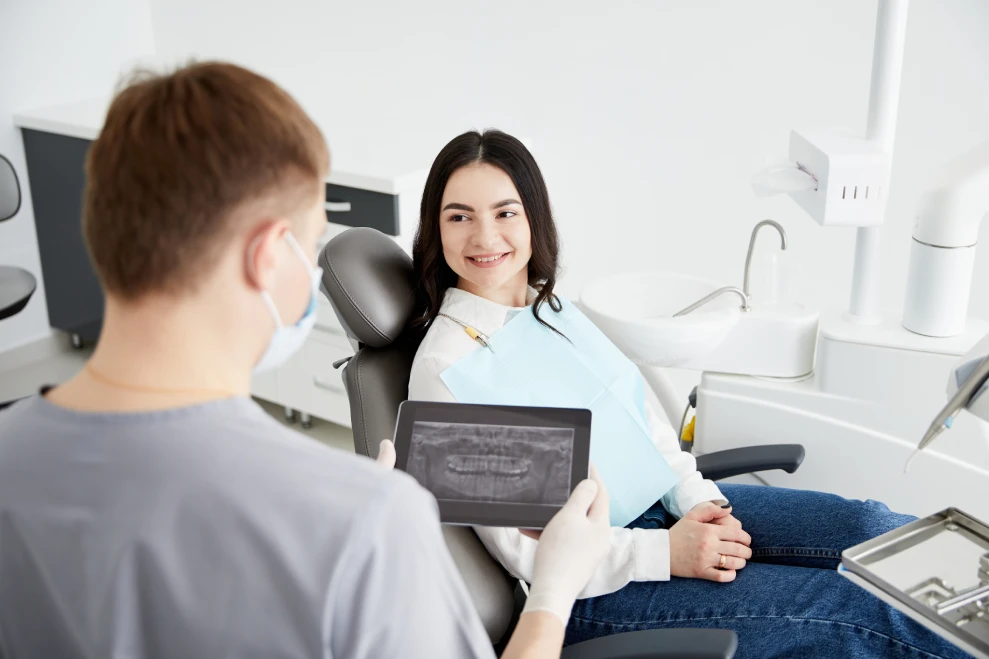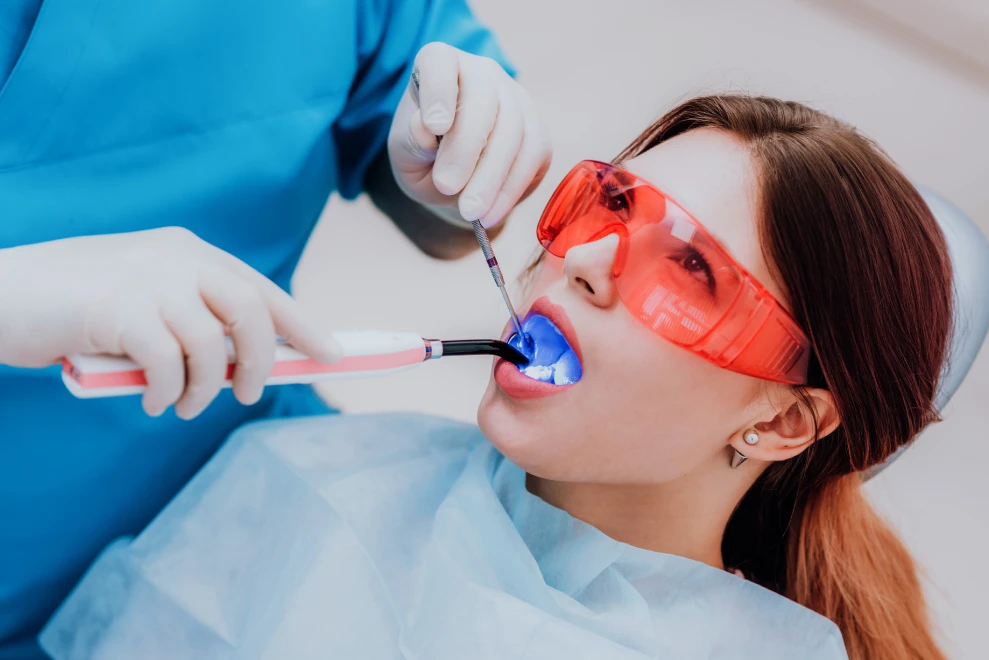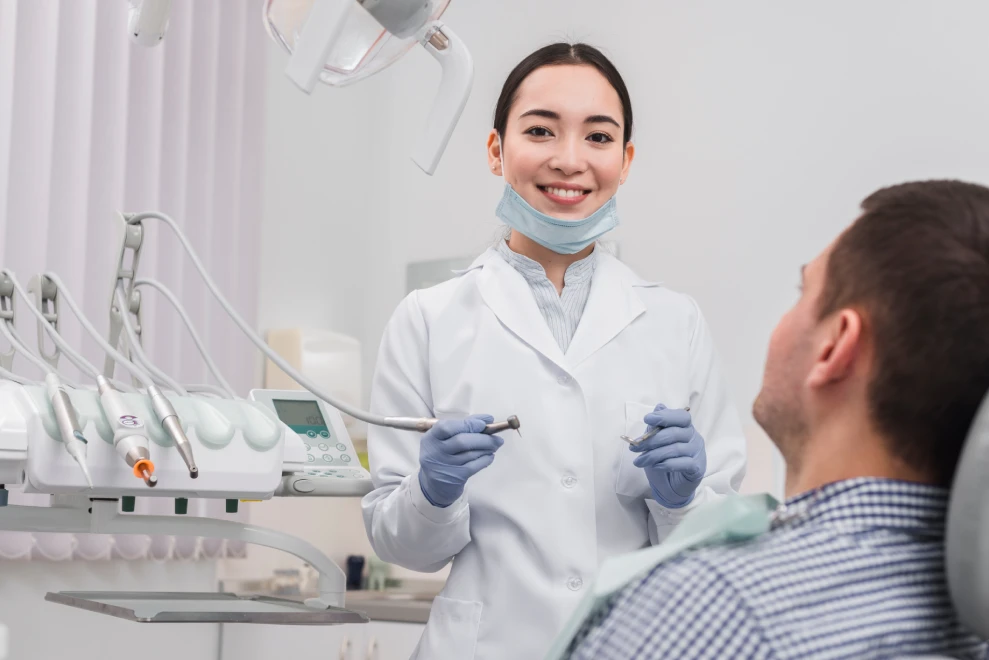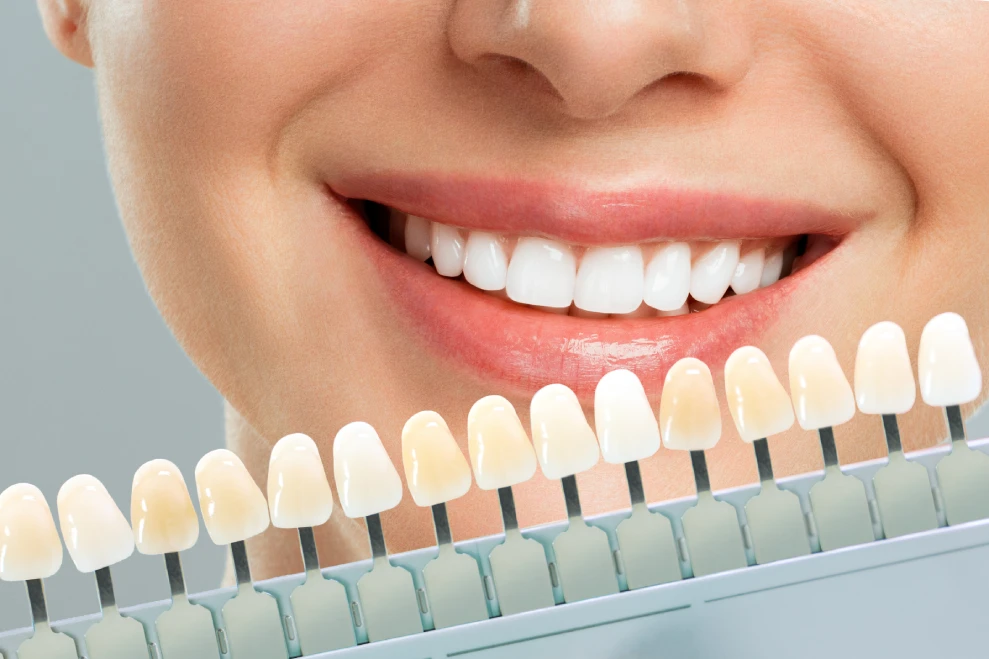Dental sleep medicine

What is it?
Dental Sleep Medicine is a specialized area of dentistry that focuses on diagnosing and treating sleep-related breathing disorders, such as snoring and obstructive sleep apnea (OSA), using dental appliances and therapies. These conditions occur when the airway collapses or is partially blocked during sleep, causing disrupted breathing, poor sleep quality, daytime fatigue, and even cardiovascular risks.
Dentists trained in sleep medicine play a key role in non-invasive management, providing solutions that improve both sleep quality and overall health. Treatments may involve custom oral appliances, lifestyle guidance, and collaboration with medical specialists.

Our Methods
At our Dental Center, we use a comprehensive, patient-centered approach to treat sleep-related disorders:
- Sleep Screening & Evaluation: Assessing medical history, sleep habits, and symptoms of snoring or OSA.
- Custom Oral Appliances (Mandibular Advancement Devices): Specially designed dental devices that reposition the lower jaw and tongue to keep the airway open during sleep.
- Collaborative Care: Working closely with ENT specialists, sleep physicians, and other healthcare providers for integrated treatment.
- Follow-Up & Adjustment: Regular monitoring to optimize device fit, comfort, and treatment effectiveness.
- Lifestyle and Behavioral Guidance: Recommendations on sleep posture, weight management, and habits that can improve breathing during sleep.
Our approach ensures safe, effective, and comfortable therapy for each patient, tailored to their specific needs.


When should you do it?
Dental sleep medicine evaluation is recommended if you experience:
- Loud or chronic snoring that disturbs your sleep or your partner’s sleep.
- Excessive daytime sleepiness or fatigue despite adequate sleep.
- Observed pauses in breathing or choking/gasping during sleep.
- Morning headaches, dry mouth, or sore throat upon waking.
- High blood pressure, obesity, or other risk factors for OSA.
Difficulty tolerating CPAP therapy or preference for oral appliance therapy.
Early diagnosis is important to prevent long-term health complications associated with untreated sleep apnea.
Treatment in dental sleep medicine provides multiple advantages for both health and quality of life

Improved Sleep Quality
Reduces snoring and apneic events, allowing uninterrupted rest.

Enhanced Daytime Alertness
Decreases fatigue, improves concentration, and boosts productivity.

Cardiovascular Protection
Helps reduce the risk of hypertension, stroke, and heart disease linked to untreated OSA.

Non-Invasive Solution
Oral appliances are a comfortable alternative to CPAP for suitable patients.

Better Overall Health
Supports better metabolic function, mood, and energy levels.
Conditions commonly managed in dental sleep medicine include





Partial or complete obstruction of the airway during sleep.
Habitual snoring without OSA, which can still impact quality of life.
Increased airway resistance causing sleep disruption without full apnea.
Often associated with sleep-disordered breathing.
Small jaw, retruded mandible, enlarged tongue, or soft tissue obstruction contributing to airway collapse.
By addressing these issues with customized dental therapies, patients can achieve safer, more restorative sleep and prevent serious health consequences.
FAQ's
- Initial evaluation and diagnosis: 1–2 visits.
- Appliance fabrication: Usually 2–3 weeks after impressions are taken.
- Adjustment and adaptation: Most patients adapt within 2–4 weeks of use.
- Ongoing follow-up: Every 3–6 months to ensure optimal function and comfort.







Chat with us
Call Us